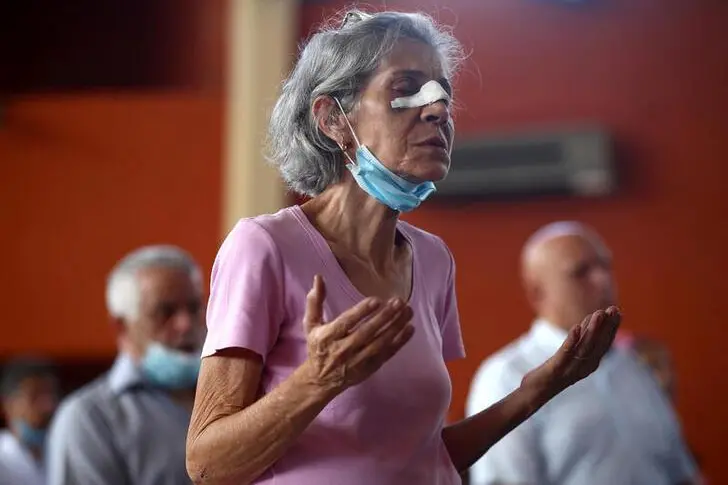PHOTO
(The author is a Reuters Breakingviews columnist. The opinions expressed are her own.)
NEW YORK - Lebanon may not survive its latest crisis intact. The country was gutted before 2,750 metric tons of ammonium nitrate ripped a hole through Beirut last week. The political class can’t govern, its currency peg has snapped, and its central bank doesn’t have enough dollars. French President Emmanuel Macron and the International Monetary Fund are calling for reforms. That’s good in theory, but in practice probably a pipe dream.
Humanitarian aid is likely to come fairly easily in this well-publicized crisis. Macron obtained commitments for over 250 million euros in an emergency donor conference on Sunday. But the collapsing country needs billions. Gross domestic product was already supposed to shrink 12% this year, according to the IMF. Some economists think the disaster could cost it a quarter of economic output.
Funders, though, won’t provide money without substantial reforms. The IMF said on Sunday it could work with authorities if they, among other things, restore financial sustainability, overhaul state-owned enterprises, impose capital controls, and create a better social safety net.
Progress on that list requires a strong government, but long-standing sectarian divisions have ossified into a dysfunctional political system in which the widely distrusted Hezbollah plays a major role. The people are livid, but any new government would struggle to build support for substantial reforms. For example, the elimination of huge electricity subsidies would be extremely unpopular.
Financial stability is as hard to imagine as a stable government. Lebanon’s private banking system is exposed to government debt, which is likely to be written down severely. Private banks are also deeply intertwined with the central bank, which as of December had a net negative reserve position.
And economic stability is a distant prospect. The pre-explosion current account deficit was above 20% of GDP. That is a shocking dependence on foreigners, especially the country’s affluent but increasingly frustrated diaspora. With a tiny export base, Lebanon will struggle to earn enough hard currency needed to pay for essential goods, let alone to pay creditors.
The current government may be willing to commit to accepting orthodox fixes as a way to unlock funding. But Lebanon may be too hollowed out for such promises to be kept.
CONTEXT NEWS
- France’s President Emmanuel Macron hosted an emergency donor’s conference on Aug. 9 to raise aid for Lebanon after 2,750 metric tons of ammonium nitrate stored at Beirut’s port exploded on Aug. 4, killing over 150 people, injuring over 6,000 and leaving around 250,000 people homeless. The conference produced commitments of around 250 million euros in humanitarian relief, according to Macron’s office.
- Kristalina Georgieva, managing director of the International Monetary Fund, released a statement on Aug. 9, saying the lender had been speaking with the Lebanese authorities for months about a reform package, but that the talks had not produced results. She said the fund is prepared to “redouble” its efforts, but that reforms were necessary, including restoring soundness to the financial system and government finances, implementing official capital controls, reducing loses at state-owned enterprises and creating a better social safety net.
(The author is a Reuters Breakingviews columnist. The opinions expressed are her own.)
(Editing by Edward Hadas and Karen Kwok) ((anna.szymanski@thomsonreuters.com; Reuters Messaging: anna.szymanski.thomsonreuters.com@reuters.net))





















